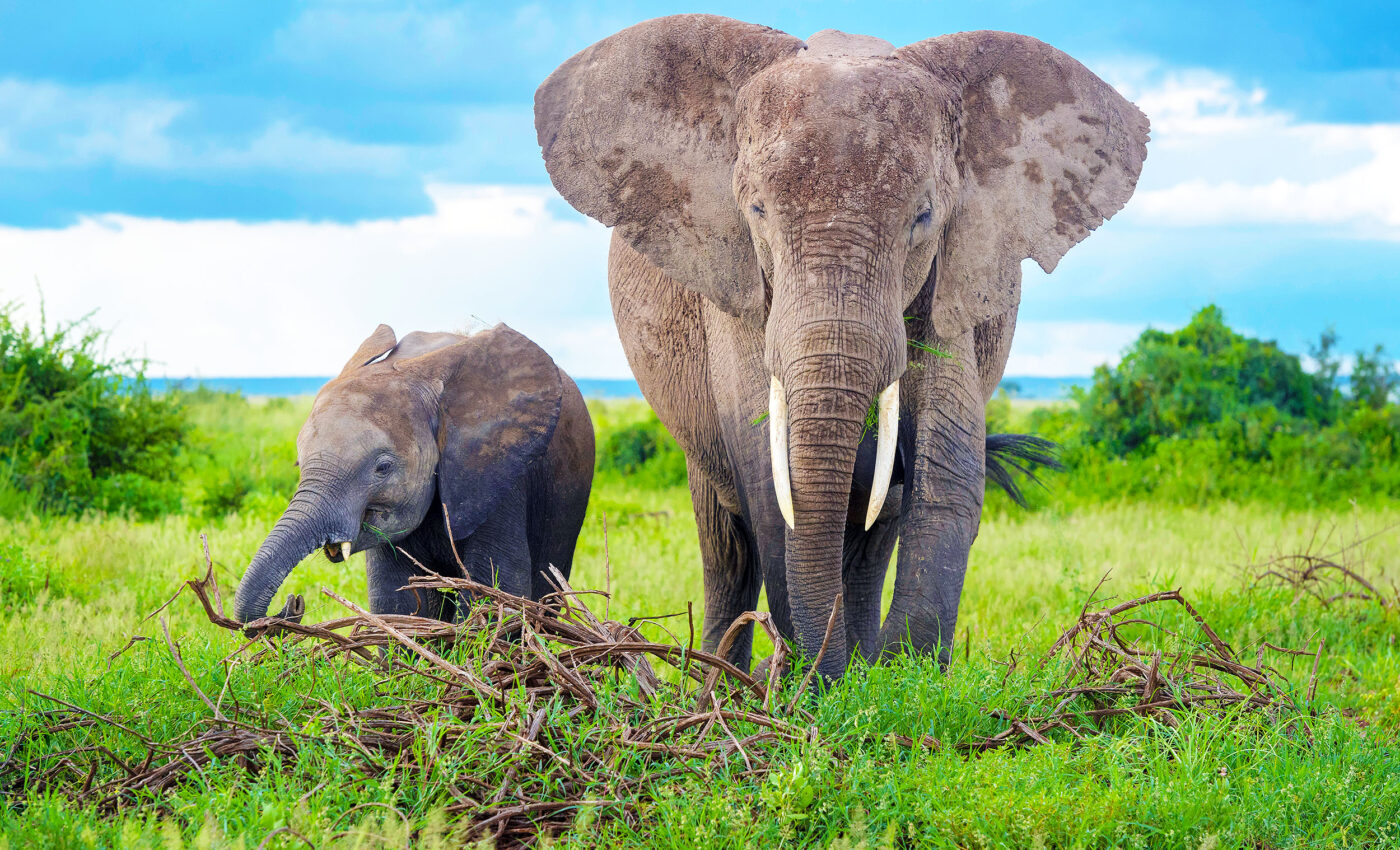
African elephants will soon become extinct without immediate international help
Disturbing new research has uncovered how climate change impacts African elephants. The study, conducted by a team from the University of Massachusetts Amherst and the Wildlife Conservation Society (WCS), reveals alarming findings, urging an immediate call to action by the international community.
Older African elephants face significantly reduced survival chances under climate change. This not only threatens the species’ resilience but also disrupts the ecosystems they inhabit.
A biodiverse haven under threat
The research centers on Africa’s Greater Virunga Landscape (GVL), a vast 15,700-square-kilometer region stretching across Uganda, Rwanda, and the Democratic Republic of Congo.
This biodiverse area, hosting seven national parks and various reserves, is also the habitat of critically endangered African elephants, vital for their ecosystem roles and cultural significance.
Historically, studies have not fully explored the interplay between environmental dynamics, climate change, elephant demographics, and habitat influences.
To bridge this gap, Simon Nampindo (WCS Uganda Country Director and UMass Amherst Ph.D. graduate) and Timothy Randhir, a UMass Amherst professor, developed a systems dynamic model.
“This model,” says Nampindo, “can look at all the different environmental and population dynamics within a system. For the first time, we’re able to get a comprehensive vision of what the future might look like for African elephants in the face of climate change.”
Impact of climate change on older African elephants
Nampindo and Randhir constructed their model using elephant population data, historical landscape changes, and various future climate-change scenarios, projecting warming of 1.6 ºC, 2.8ºC, and 4.3ºC over the next 80 years.
They then analyzed how each climate scenario would impact five different elephant age groups: under 10 years, 11 – 30 years, 31 – 40 years, 41 – 50 years, and over 50 years.
“Any impact on one age class echoes through the entire population,” Randhir notes.
The findings are stark, to say the least. Older elephants, crucial as matriarchal leaders, will be severely affected across all climate warming scenarios. Their loss would disrupt herd dynamics, genetic profiles, and landscape interactions.
“We found that the older elephants will be massively affected by warming under every scenario,” says Nampindo.
“Elephants are matriarchal — their leaders are the older cows, and the herds depend on their wisdom, long memories and ability to outsmart prey, and if they are lost to changing climate, it will wreak havoc on the surviving, younger herds, as well as change the genetic profiles and structures of the herd. There will also be ripple effects through the GVL’s landscape,” Nampindo explained.
Shaping conservation policies
But the study offers more than grim forecasts. Randhir highlights its utility for policy guidance, emphasizing the need for coordinated management across the GVL.
Strategies must encompass anti-poaching efforts, community-led programs, and habitat management to counter fragmentation, fire, and invasive species.
“These results are very important to WCS,” says Nampindo, underscoring the broader implications. “If we can do a good job at protecting elephants, our efforts will reverberate to other species, such as lions and mountain gorillas.”
“More broadly,” says Randhir, “the most exciting thing about this systems dynamic modeling is that it can be adapted to any migratory species that move across political boundaries, from fish to birds to lions.”
African elephants, climate change, and the future
In summary, the jolting research by Nampindo and Randhir offers a critical lens through which we can view the future of African elephants amidst the growing challenges of climate change.
By employing a dynamic systems model, their study highlights the vulnerability of different elephant age groups to rising temperatures while underscoring the necessity for collaborative, multi-faceted conservation strategies.
These strategies must integrate anti-poaching efforts, community engagement, and habitat management to ensure the survival of these majestic creatures.
This study, therefore, stands not just as a call to action for the conservation of African elephants, but as a blueprint for safeguarding migratory species across diverse ecosystems and political boundaries.
The full study was published in the journal PLOS Sustainability and Transformation.
—–
Like what you read? Subscribe to our newsletter for engaging articles, exclusive content, and the latest updates.
—–
Check us out on EarthSnap, a free app brought to you by Eric Ralls and Earth.com.
—–













